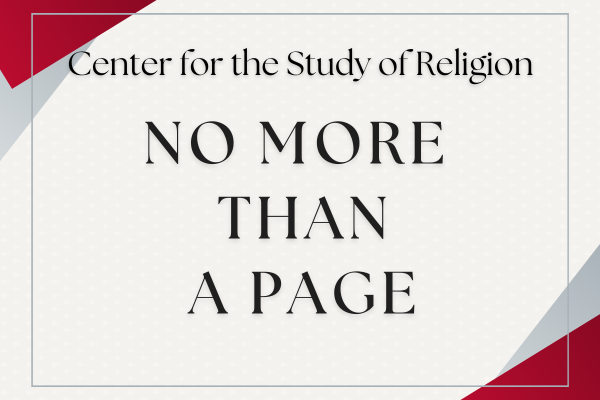
Soundscapes of Deliverance in Revolutionary American Writing
Please join us for the next installment in our "No More Than A Page" series. This series gives an opportunity for faculty and advanced graduate students to receive feedback on their research in process. Presenters provide attendees with a one-page summary of their current research and attendees engage in a lively discussion.
April's talk will be given by Bradley Dubos, Ohio State University's new Provost’s Fellow in Native American Literature and Culture. He is a collaborative faculty member in the American Indian Studies Program and a faculty affiliate of the Center for the Study of Religion.
Abstract: In her only surviving letter to Mohegan/Brothertown minister Samson Occom, poet Phillis Wheatley Peters renders the hypocrisy of certain white evangelicals into an audible expression: the “Cry for Liberty” of those who supported American independence but paradoxically continued to enslave Africans and dispossess Native peoples. This paper takes the somewhat elusive connection between Wheatley Peters and Occom—foundational writers in African American and Native American literary traditions, respectively—as an entry point to consider how Black and Native relations during the American Revolution produced alternative soundscapes, resounding calls for freedom, justice, and spiritual sovereignty for Black and Indigenous peoples. Tracing these authors’ literary intersections, along with the archival gaps and silences in their relationship, can illustrate how Black and Native Christians remixed, resisted, and fundamentally transformed the Revolutionary soundscapes they inhabited.
Bio: Before joining the Department of English at OSU, Bradley Dubos was the NEH Public Humanities Fellow at the New-York Historical Society, where he worked on the curatorial team for the traveling exhibition Acts of Faith: Religion and the American West. He has collaborated with tribal nations and community members on a variety of projects related to public history, cemetery preservation, library accessibility, and creative placemaking.
This event is free and open to the public. Co-sponsored by the Humanities Institute.
The Humanities Institute and its related centers host a wide range of events, from intense discussions of works in progress to cutting-edge presentations from world-known scholars, artists, activists and everything in between.
We value in-person engagement at our events as we strive to amplify the energy in the room. But we also recognize the fact that not all our guests will be able to visit our space. Zoom access will be available to this event upon request. If you wish to have such access, please send your request to MacKenzie DiMarco: dimarco.33@osu.edu.
